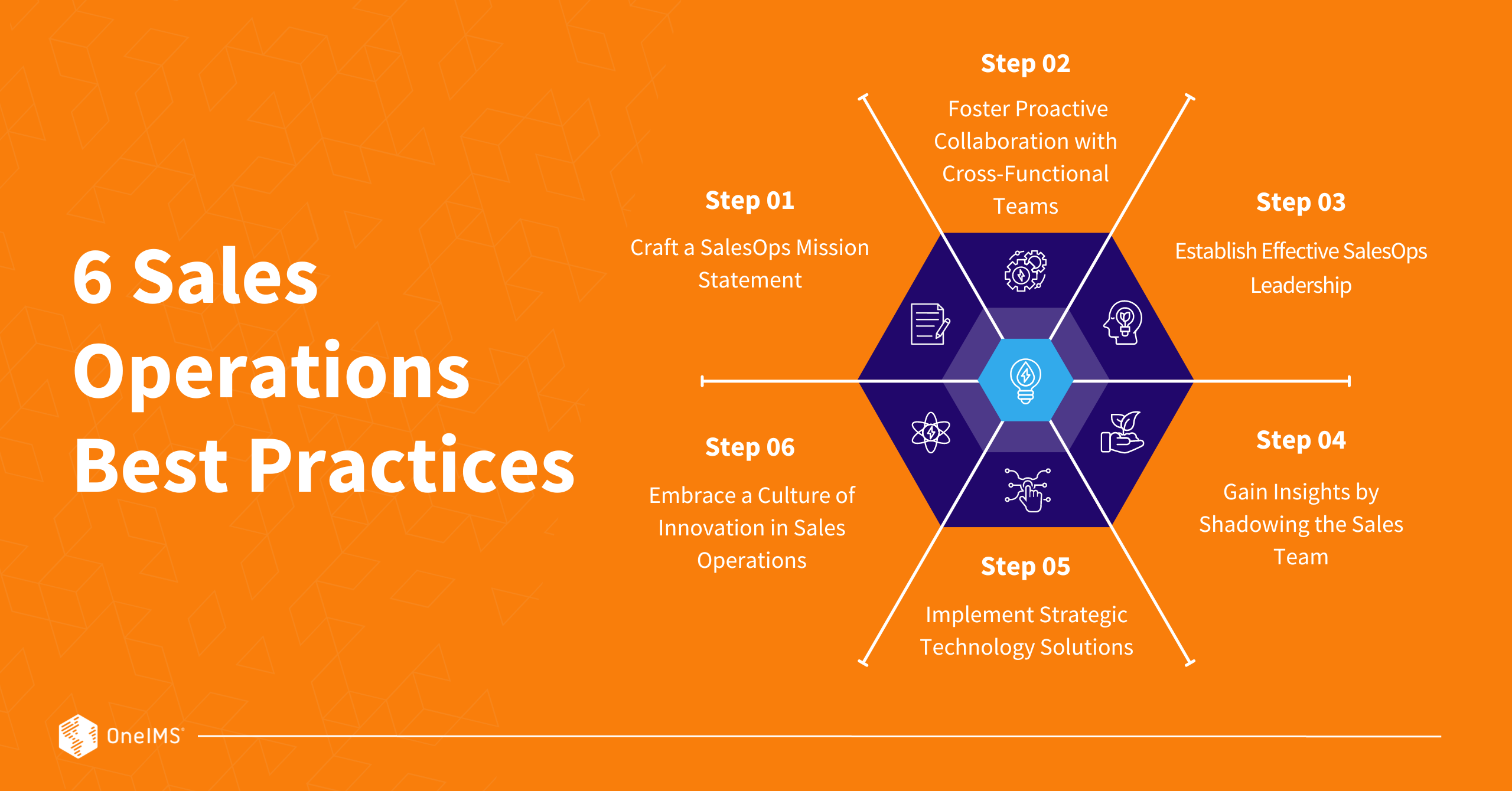When NASA launches a rocket into space, the astronauts may be in the limelight, but there’s a whole team on the ground making it happen. When NASCAR drivers race around the track, it’s thanks to the hard work of the pit crew that keeps things running smoothly. The ground team and pit crew often go unnoticed, but they’re essential to a successful rocket launch or competitive race.
It’s the same with sales: When a sales team closes deals and operates at peak performance, it’s because of a sales operations (SalesOps) team optimizing the sales process in the background.
The SalesOps team doesn’t get the spotlight—that’s reserved for your sales representatives (and astronauts and NASCAR drivers). Instead, sales operations professionals are dedicated to reducing friction in the sales process, boosting the efficiency of your sales team, and taking on these operational burdens so your sales representatives can spend more time doing what they do best: building relationships with prospects and closing deals.
Why Is SalesOps Important for B2B Companies?
In the past, sales success has been measured by the individual performance of sales representatives. Today, the most competitive business-to-business (B2B) companies have transformed their approach to sales success, realizing that optimizing the sales process itself is the key to sales and revenue growth.
That’s where SalesOps comes in (and why the role of sales operations shows no signs of slowing down).
SalesOps enhances the productivity of your sales team, optimizes sales processes and workflows, leverages technology to achieve growth goals faster, manages the sales tech stack, and analyzes data about the sales experience to guide decision-making.
The most efficient sales operations teams also work with other functions, including marketing operations (MarketingOps) or revenue operations (RevOps) departments—if they exist within your B2B company. By partnering with these departments and collaborating with your sales, marketing, and customer success teams, SalesOps creates a smoother sales process and ensures your sales team members have what they need to succeed.
If your B2B organization wants to increase revenue, maximize the potential of your sales team, and achieve your growth goals, start investing in SalesOps.
6 Sales Operations Best Practices
As B2B organizations continue to invest in sales operations, they need to start considering how to best optimize their SalesOps teams. Follow these best practices to ensure your SalesOps team works efficiently and achieves performance goals quarter after quarter.
Craft a SalesOps Mission Statement
Everyone on your SalesOps team—and the broader sales department—need to be in alignment from the very beginning. They require clear direction and goals to know where SalesOps is going and what it is trying to achieve.
The first step in articulating the purpose and value of sales operations within your B2B organization is to craft a SalesOps mission statement. This mission statement should be short, succinct, and easy to understand. The goal is to define your objectives and purpose in a way that shows your SalesOps staff, your sales team, and your organization how sales operations will benefit the company.
Articulate a SalesOps mission statement that aligns sales operations with overall business goals and objectives. Then, share it company-wide.
Foster Proactive Collaboration with Cross-Functional Teams
Collaboration is key. SalesOps must consistently meet with sales, marketing, and other relevant teams to ensure the sales operations team is effectively solving problems, streamlining processes among departments, and tackling the most important issues.
This exchange of information is unlikely to happen on its own, so SalesOps teams should create a consistent schedule and process for collaborating with cross-functional teams.
Proactively engage with other teams, such as marketing, customer success, sales, and finance to foster alignment. Additionally, encourage open communication channels and promote a collaborative work environment. Consider holding periodic meetings with MarketingOps, SalesOps, and RevOps leaders to ensure all teams are in alignment and monthly syncs with the sales and marketing departments to discuss sales strategy.
Establish Effective SalesOps Leadership
Strong leadership is essential to the success of your SalesOps team. Appoint capable leaders who can effectively guide and inspire the sales operations team, and create a clear leadership structure so everyone knows who they should report to. These leaders should ensure each SalesOps team member knows what their responsibilities are, who they report to, and how to achieve their goals.
An experienced SalesOps leader should also foster a culture of accountability, continuous learning, and professional growth within the sales operations department—as well as deeply understand the SalesOps mission statement so they can guide the department in the right direction.
Gain Insights by Shadowing the Sales Team
Your SalesOps team is submerged in data, platforms, organizational workflows, and metrics. They can easily get lost in the numbers and paperwork. But while this work is critically important to the success of your sales team, it can also make it difficult for SalesOps to see the big picture.
The missing element? Collaborating with the sales staff and learning about the challenges they face in the field.
Encourage your SalesOps department to actively observe and engage with the sales team to understand their pain points, processes, and needs. Then, they can use this firsthand experience to identify areas for improvement and to implement effective sales strategies.
Another bonus: By shadowing the sales team, SalesOps will strengthen the relationship between these departments and inspire mutual collaboration.
Implement Strategic Technology Solutions
SalesOps selects and manages the sales department’s tech stack. It’s the responsibility of SalesOps team members to determine what tools are needed and to train sales representatives on how to use them as part of their sales processes.
The key is to pick tools that your sales team and SalesOps members will use. There are a lot of technology solutions out there—choose them strategically. In other words, evaluate and implement technology solutions that align with the specific goals and needs of the sales team and SalesOps department in your B2B organization. Look for technology that will enhance efficiency, automate repetitive tasks, and enable data-driven decision-making.
Investing in the right tools can dramatically boost the efficiency of your sales team.
Embrace a Culture of Innovation in Sales Operations
The most successful SalesOps teams embrace change. Sales operations departments should constantly be optimizing and innovating sales processes and technology platforms as you learn new things about your customers, as the B2B landscape changes, and as your company continues to grow.
Encourage a mindset of innovation and creativity within the SalesOps department. Foster an environment where new ideas and approaches are welcomed, tested, and implemented to drive continuous improvement.
Your goal should be a careful balance: Don’t make so many tweaks and changes that your SalesOps and sales teams get confused, but continue to make updates that help these teams operate productively and successfully.
Master the Art of Sales Operations with OneIMS
Sales operations is designed to improve the efficiency of the sales team, leverage data to drive sales strategy, and achieve predictable, sustainable sales growth—and today’s B2B companies are realizing the power of this essential department. SalesOps is now the foundation of a successful sales team, and if you want your B2B organization to stay competitive, it’s time for you to invest in sales operations.
At OneIMS, our team of SalesOps experts is ready to help your organization adopt a sales operations strategy to streamline operations, optimize sales processes, and function more efficiently. We have the strategies, solutions, and tools you need to foster a culture of cross-departmental collaboration, improve sales performance, and launch a new SalesOps framework that will accelerate the growth of your business.
We have a long history of working with companies in a variety of industries to develop innovative and data-driven marketing solutions, and we pride ourselves on producing measurable and sustainable results.
But you don’t have to take our word for it. View testimonials from our clients and read our blog to get an idea of our training, experience, and track record of success.
Are you ready to invest in sales operations? Schedule a consultation with us today to get started.


































